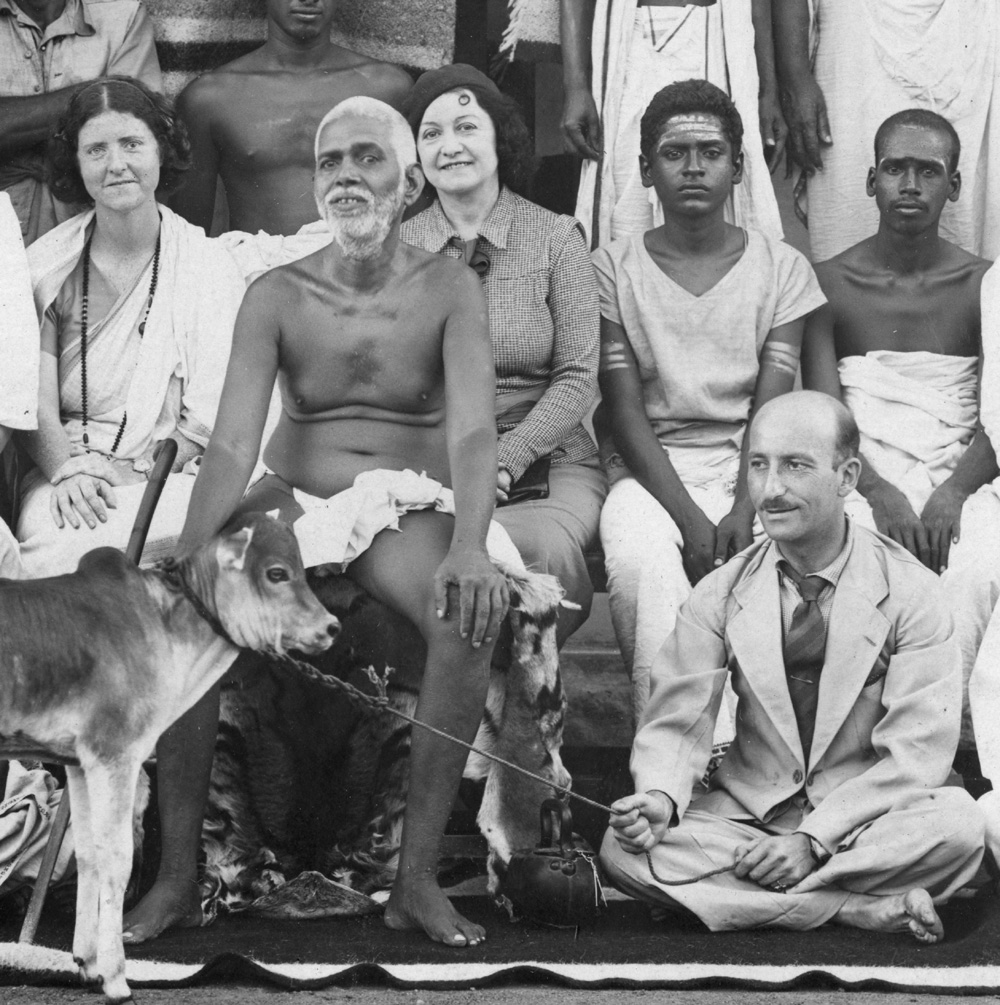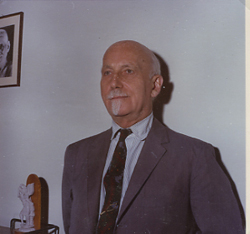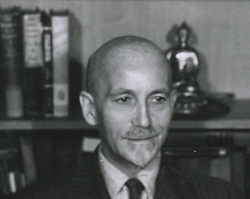
This was originally posted on my blog 3 May 2010:
In the last few days there have been a few comments about Paul Brunton and the role he played in disseminating Bhagavan’s teachings. This discussion prompted me to have another look at a long academic paper – ‘Paul Brunton and Ramana Maharshi’ – that was published online a few years ago. Its author was Dr J. Glenn Friesen, a Canadian scholar, and the link can be found here:
http://www.members.shaw.ca/abhishiktananda/Brunton.html

Dr Friesen investigated and summarised all that is known about Brunton’s life before he came to see Bhagavan. It is a commendable piece of research. I suspect that very few readers here will have come across even a fraction of the incidents and stories that are collected there. However, Dr Friesen was not merely interested in uncovering the facts of Brunton’s life. He wanted, in addition, to demonstrate how Brunton’s ideas and terminology had influenced Bhagavan’s own teachings. The position that Dr Friesen takes is that Bhagavan did not derive the vocabulary and style of his teachings from his own experience but from the books he read and from the devotees he encountered during his teaching career. This central idea is laid out in another long paper he wrote entitled: ‘Ramana Maharshi: Hindu and non-Hindu Interpretations of a Jivanmukta.’ This can also be found online. The link is:
http://www.members.shaw.ca/abhishiktananda/jivanmukti.pdf
I concluded my previous post with a quotation from Talks with Sri Ramana Maharshi (talk no 189) in which Bhagavan specifically stated that his teachings derived from his own experience of the Self, and not from reading the words of philosophers such as Sankara. I will repeat it again here:
Mr M. Oliver Lacombe, a middle-aged Frenchman who was on a visit to India, being delegated by the Institute of Indian Civilisation of the University of Paris, came here from French India. Among others he had desired to meet Maharshi; he came and stayed here about three hours. He had read, in the Sanskrit original, the Bhagavad Gita, the Upanishads and the Sutras with commentaries by Sri Sankara and Ramanuja.
He asked: Is Maharshi’s teaching the same as Sankara’s?
Bhagavan: Maharshi’s teaching is only an expression of his own experience and realisation. Others find that it tallies with Sri Sankara’s.
Devotee: Quite so. Can it be put in other ways to express the same realisation?
Bhagavan: A realised person will use his own language.
No space in Dr Friesen’s paper was devoted to discussing the possibility that Bhagavan’s own comments on the source of his teachings might have been true. Last year I had a brief email exchange with Dr Friesen in which I asked him why he had not even considered that Bhagavan’s words came from the Self. His response was to say that such a position would be unscholarly.

Dr Friesen does seem to accept that Bhagavan realised the Self, but he does not accept that such an experience was the source of everything he said and wrote. He goes to extraordinary lengths in these two papers to track down and isolate all the influences that Bhagavan was subjected to during his life, before going on to posit that these external factors determined Bhagavan’s teaching style, his vocabulary, and even to some extent his world view.
I confess that I went through these two papers, over 200 pages in total, with a mounting feeling of amazement. I am used to talking to people whose ignorance of Bhagavan and his teachings come from unfamiliarity with the texts on his life and teachings. In this case, though, I was encountering a sophisticated academic mind that had thoroughly immersed itself in the Bhagavan literature, thought about it, analysed it, and then come to a conclusion that, to me, was utterly bizarre and completely unsustainable.
Don’t let my negative comments put you off reading these papers. There is a lot of information on Bhagavan in them that may be new to people here. Caveat emptor, though.
Dr Friesen was a scholar and student of Swami Abhishiktananda, the French monk who stayed with Bhagavan in the late 1940s and who, in the years that followed, wrote many books about Christianity and Hinduism. Dr Friesen speaks about Swami Abhishiktananda’s life and summarises his own ideas on Bhagavan in the following interview:
http://www.innerexplorations.com/ewtext/Friesen.htm
Here is a video clip of Paul Brunton with Ramana Maharshi at Ramanasramam in 1935. The swami to his right is Yogananda Paramahamsa. The other people were followers of Yogananda.